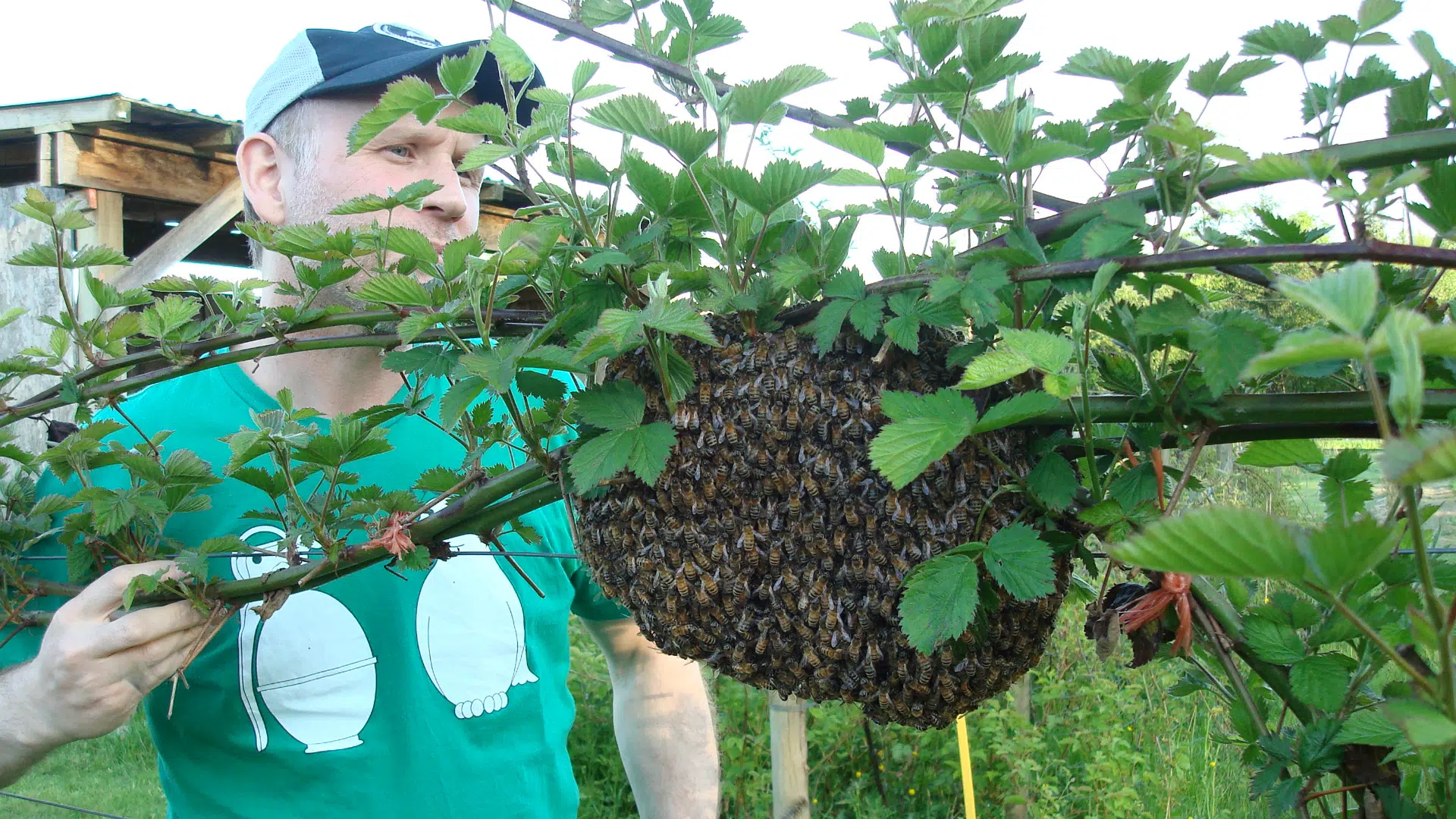
Swarm of honey bees? Help is available
LETHBRIDGE — There’s now help for people who may recieve a certain type of unexpected visitor in their yard.
The Swarm Response Line is standing by to connect local beekeepers to property owners who find themselves looking at a swarm of honey bees. This is the time of year it’s likely to happen, explains Chelsea Sherbut, beekeeper and co-founder of Lethbridge Bee Enthusiasts, which works with the city of Lethbridge to operate the line.
“A swarm is a sign of a really healthy beehive,” Sherbut said in an interview. “It means that they have gotten really strong, and half of them are going to go off and make a new colony.” She adds these bees are not defensive, and won’t stay for long.
“We do our best to manage our hives so that they don’t swarm. But once they do go it’s the rule of the Wild West. You just collect them as you can.”
– Chelsea Sherbut


